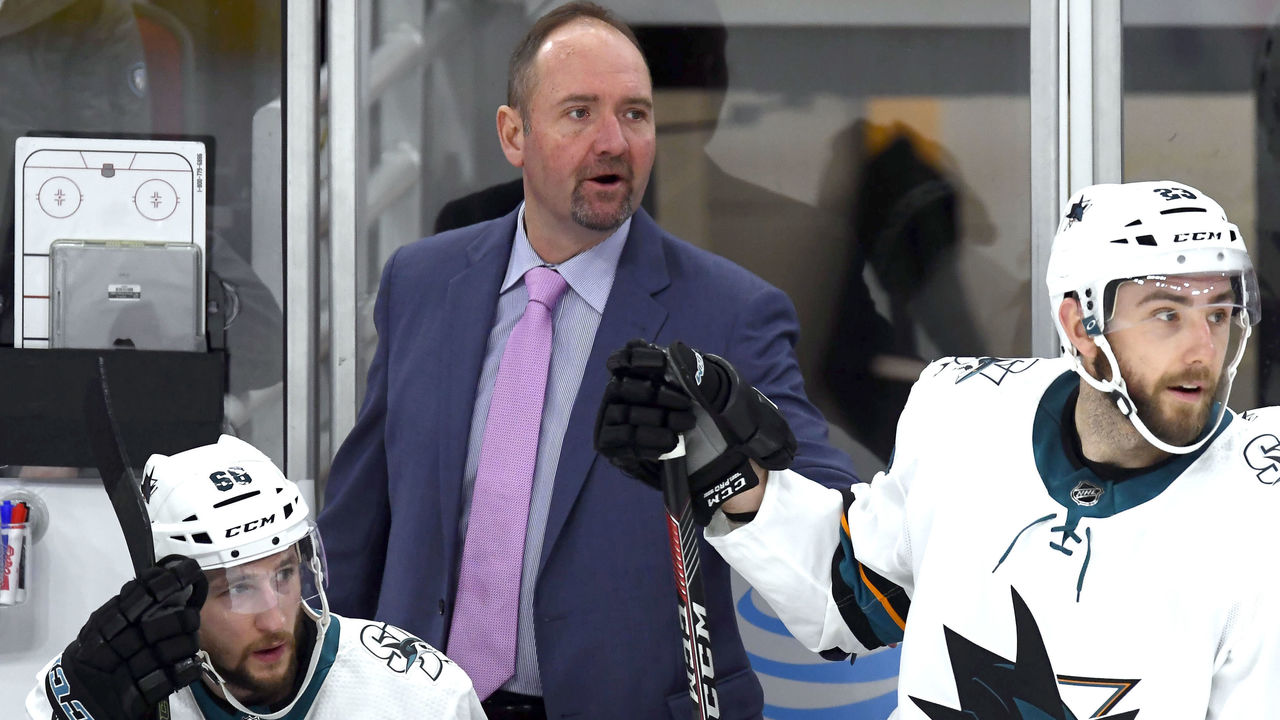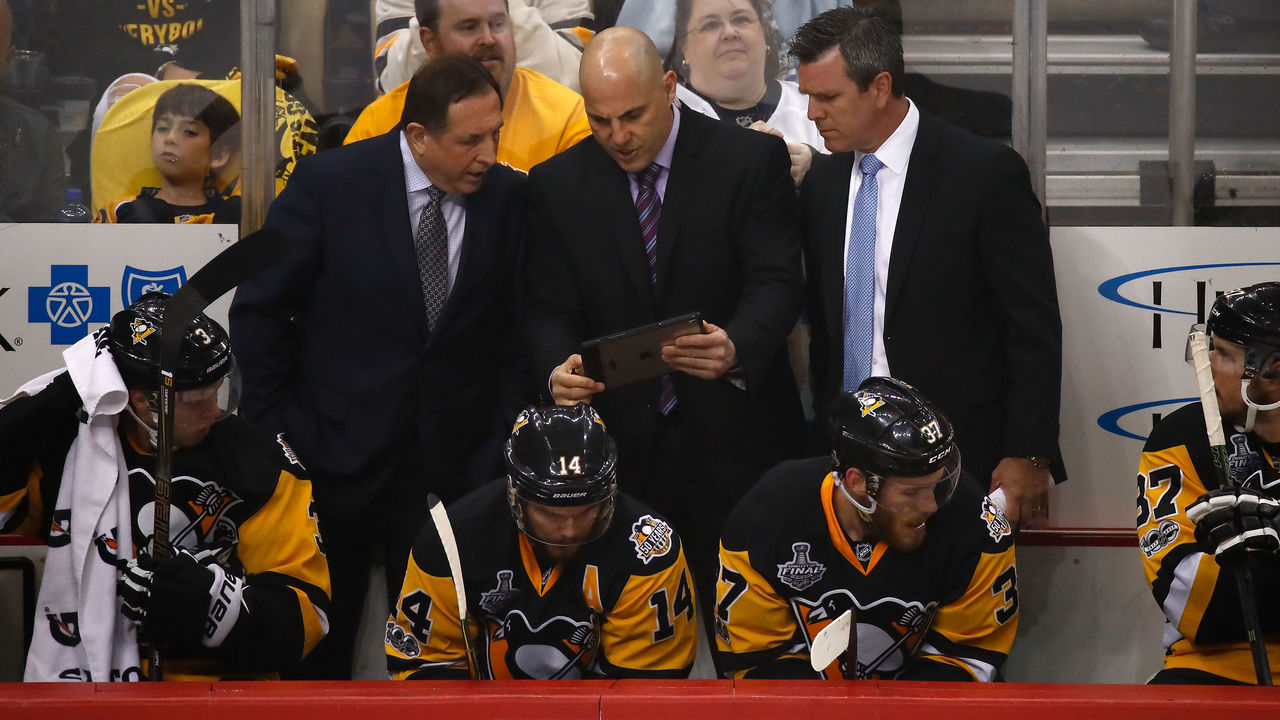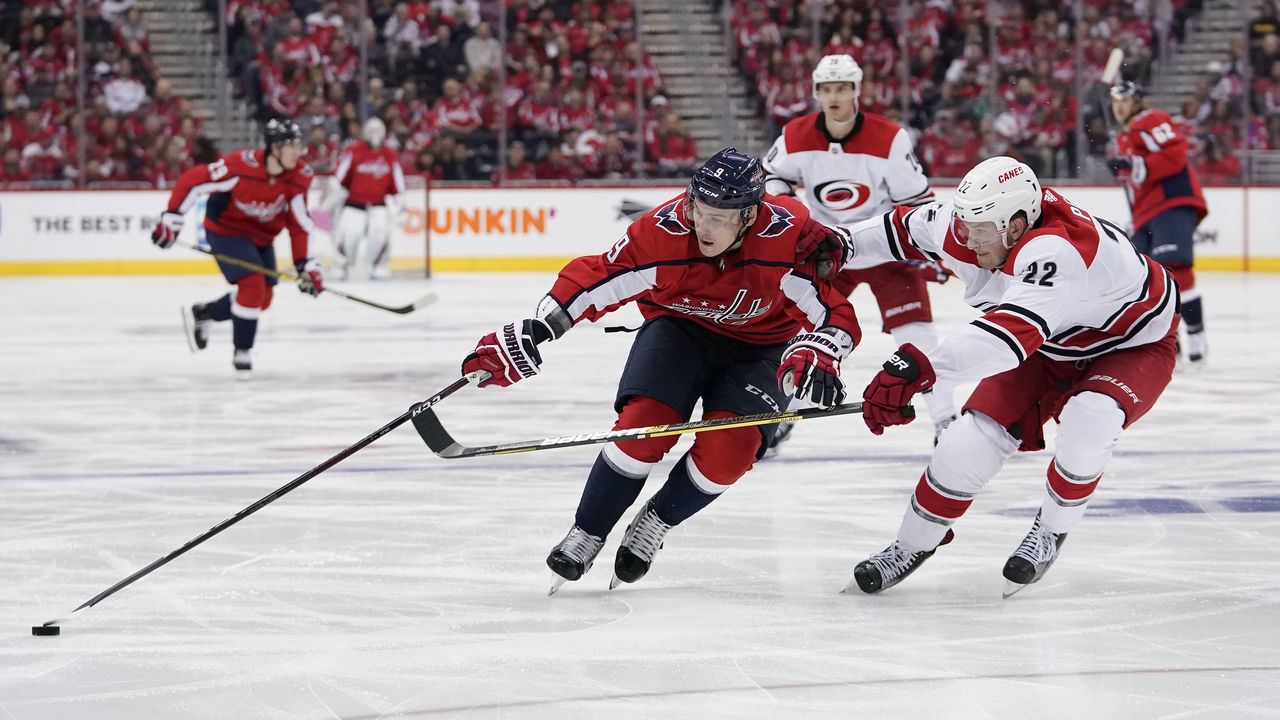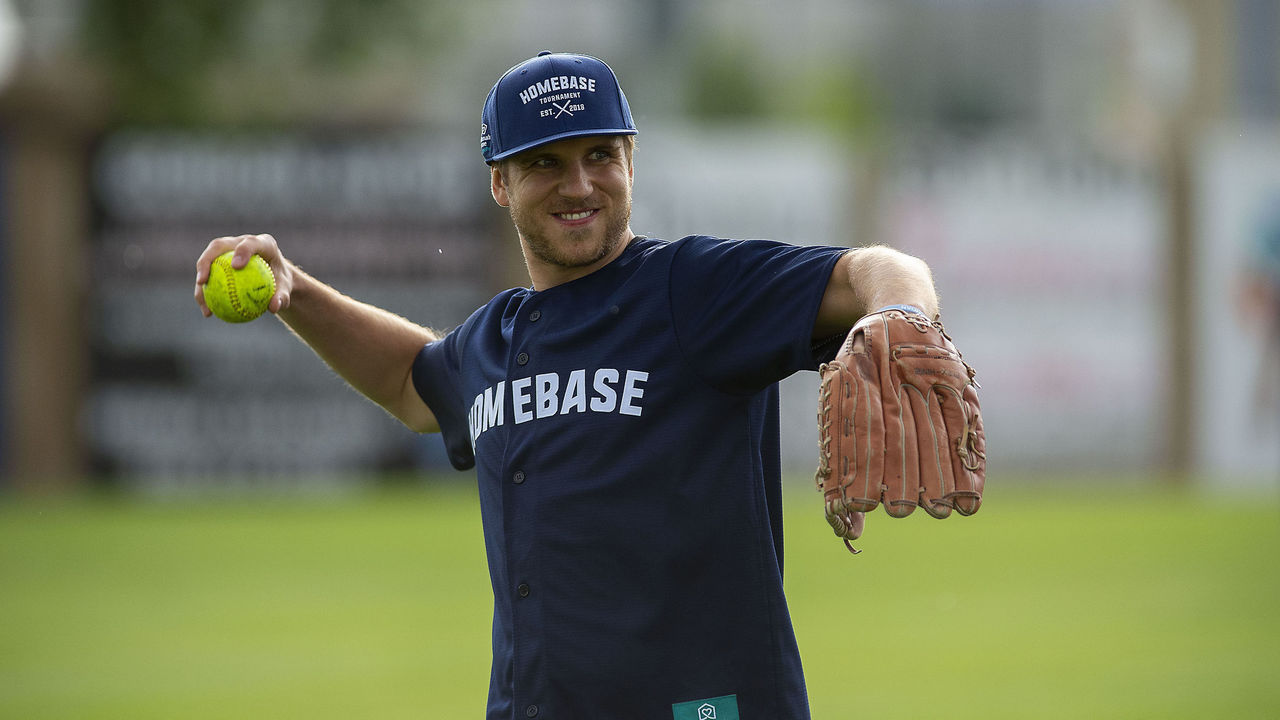Coaches panel: Discussing biggest challenges, future tactical trends
At this past weekend's TeamSnap Hockey Coaches Conference in Toronto, theScore chatted with a group of high-level coaches to gain some insight into their profession as it evolves alongside the sport itself.
The participants:
- Pete DeBoer, San Jose Sharks head coach (NHL)
- Rikard Gronborg, ZSC Lions head coach (Switzerland)
- Greg Powers, Arizona State head coach (NCAA)
- Todd Woodcroft, Winnipeg Jets assistant coach (NHL)
- Mike Kelly, Vegas Golden Knights assistant coach (NHL)
- Reid Cashman, Washington Capitals assistant coach (NHL)
The conversations, lightly edited for brevity and clarity, were held individually and compiled to form the discussion below.
What’s the No. 1 challenge facing today's high-level coaches?
DeBoer: "I honestly believe the biggest challenge for all of us going forward is analytics, and what role analytics is going to play and what we're doing at ground level. They're important, but to what extent? How much are you using them? How much is overuse? How much do the players want, without overextending it?”
"A version of analytics has been around since probably (legendary Canadiens coach) Toe Blake tracked scoring chances against or odd-man rushes. Coaches have been doing that forever. Now we’ve got this pile of information on every play that happens in a game, and there’s some important, valuable information in there, but it’s all about how you filter through that and what you give to the players. For every yin, there’s a yang. If you’re good in one area, you’re going to give up something in another area."

Gronborg: "Doing the daily work and believing in something that you set out to achieve. There's going to be a lot of push and pull out there, a lot of influences that want to get in there. If you really believe in what you're doing, really believe in waking up in the morning and taking on the challenges, I think you're in good shape, no matter what level you're at. The coaches of the Toronto Maple Leafs - (Mike) Babcock and the rest of the coaches - can attest. There's a lot of pressure in a lot of different situations. How do you handle that? You do the daily work and believe in what you're doing, and make everyone in the locker room believe in the daily work as well."
Cashman: "I think the No. 1 challenge is getting your players to trust you - and I say that in a positive way ... If you don’t get a player who believes you'll be able to maximize his abilities, I think you're going to have a tough time coaching him.”
"For me, as a (defense) corps, we’re all going to be connected, and then individually you and I will figure out the best way to maximize your abilities. What does that mean? Well, do you need extra work before practice? Do you like to be in the weight room before practice? Is there stuff going on at home? As a university coach, how are classes going? Can I help you with classes? And now you trust me because you know that I want to help you as a human being, and then as a hockey player."
Woodcroft: "I'll back up to my first year in the NHL, in 2000. Seeing the evolution of the voice that the players have now. It has evolved from authoritative - well, authoritative is not the right word, but it wasn’t really a democracy before. The players would do what the coaches told them to do, and they would often do it without asking questions and understanding why. Now, the players are in partnership with the coaches. The best coaches, I think, are the ones that have the idea that they're managers also, and that the 23 guys on your roster are people too. They have lives outside hockey.”
"Society now, with social media and the pressures these guys have - I could have scored that goal, I could have made that save, why was this guy on the ice, what the hell is wrong with this power play - everyone has an opinion. That sometimes bleeds into the players’ lives and influences players. Our job as coaches is to manage expectations and manage the notion that we’re a team and that the team is insular."
Powers: "Oof. That’s a loaded question. I think, especially for older coaches, it’s understanding that you’ve got to coach guys differently today. You can't just blanket-treat players anymore. You have to get to know them. What makes each individual player tick? Everybody's motivated in a different way. With all the distraction - social media, technology - you almost have to peel back the onion more to really get to know what makes a kid go. It's an ongoing process for me."
How does your organization manage analytics and team culture? What’s the optimal fit?
Gronborg: "I call it the 'package.' Every day, when a player shows up, we give him a (verbally communicated) package. Some packages have statistics and analytics in them, but mostly it's going to be about what we're doing on the ice. You shouldn't burden them too much with analytics. At the same time, I like to take those numbers and say, 'We're really successful here. We're not so successful here, so let’s change that.' That’s information. As coaches, one thing we need to do is boil everything down."
Kelly: "(In Vegas), we have a guy who works in the analytics department who's played at the college level - Dustin Walsh. He does a really good job at giving (the coaching staff) meaningful data. He'll ask us what we want, and we'll ask for a basic outline back. So he'll give us about three-to-four pages of information before the game and then after the game.”
"It's funny. His numbers align really well with how we saw the game, and so it's good that after we come back the next day we have the report. It’s sitting there, and you can go, 'Yeah, I was right. This is what I saw.' Sometimes it's not the same, but there could be reasons for it. Or, there might be a number there that doesn’t really reflect what happened accurately. But I’d say 95 percent of the time they're right on."

Woodcroft: "For myself, it's an easy answer ... If you're neglecting something (like analytics) - whether you don't understand it, or you think it's silly, or whatever - you’re probably doing your team a disservice.”
"(Winnipeg coach) Paul Maurice is a master of using analytics as a narrative, as a way to weave through the team we're going to play and how we're playing. We focus a lot on how we play, and we'll use analytics accordingly. I think analytics is not just the recent thing, I think it’s the future as well.
"If you have money to spend outside the (player salary) cap, it’s going to make your team better. Teams that have huge financial war chests will have an advantage, being able to put a ton of resources into analytics. Teams that maybe don’t have the luxury of spending all of that money on it, I think down the road will probably suffer. You saw in the '80s. (There were) teams that didn't have goalie coaches, video coaches, and strength coaches, and then they understood it was the wave of the future and started hiring these guys full time. Now teams have two goalie coaches, two video coaches, three or four strength coaches. There's no cap off the ice. The best teams spend smartly outside the cap, whether it's player development, or the best things your team can eat, or sleep doctors."
What do you think is, or will be, the next tactical trend in coaching circles? Example: Five forwards on a power-play unit.
Gronborg: "I’m looking more at the complete game and involving all players in all situations. Yeah, you have defensemen and forwards, you have centers out there, whatever, but it's a free-flowing game, so why not involve them all?
"Everyone is so tight, everyone is so scouted nowadays. Let’s switch it up a little bit, let’s challenge the norms a little bit by making movements and formations nobody's used to.”
"They're so used to 'left defenseman,' 'right defenseman' and playing a certain position. It's pretty easy to defend that. But what happens if you spread out, what happens if you go in patterns they're not used to? A little bit of positionless hockey, especially in the offensive zone (could be the trend)."

Cashman: "I think defensemen need to become more involved in the offensive zone. With how teams defend so low (in the zone), smothering five guys low, the open ice is up high. I think you need to teach defensemen to take advantage of that open ice, and not just get a puck, roll your head, and shoot it. Take it, attack that open ice, and create options.”
"We preach options (in Washington). Put yourself in a position to have multiple options. If the (point) shot is there and the best option, take the shot. But if it’s not and there’s a bunch of open ice, take it instead."
Powers: "Generally, the best coaches have always been the best thieves, right? There's no need to reinvent the game. I think the game is simple.
"Obviously, you always look at NHL games and watch special teams. The drop (pass) on the (power-play) breakout was really hot for a while - kinda slowing it down and changing sides - but (penalty kills) are so advanced now that forecheckers have figured that out. Now, coming up with speed is almost coming back (into the mainstream) ... I think that coaching is so advanced, and players are so prepared now because of it, that you almost have to have different plans ready. Maybe two units that do two completely different things and both are prepared to flip-flop to what the other is doing."
If you had a hockey-playing 10-year-old son or daughter, would you encourage playing other sports in the summer months or double down on hockey? Is 10 too young for specialization?
Cashman: "A 10-year-old? I do not think they should be specializing. If my daughter wants to do one camp in the summer where she gets on the ice because she loves hockey, yeah, I think you can do a camp. I think it's crazy when 10-year-olds are chasing tournaments all over North America in the summertime and playing 100 games in a calendar year. They're not practicing, they’re not developing other skills as an athlete. To be the best athlete you can be, you need to maximize your athleticism. And to do that you need to play multiple sports."
Kelly: "I think, in a perfect world, people would play a number of different sports. But we don't live in a perfect world anymore. It depends on how seriously they want to be about a sport. If they just kinda like a sport, go out and play as many sports as you can. Unfortunately, it's gotten to the point where competitive hockey players - just like competitive ball players, competitive soccer players - are playing hockey 12 months a year, or 11 months a year. So, if you want to keep up, that's what you have to do. I don't have to agree with it, but it is what it is. We live in a different world. Just because we did it one way doesn’t mean it's the be-all, end-all."

Powers: "100 percent other sports … You want athletes that know how to compete, not robots. I think the hockey community is now trying to produce these robotic players that are machines. I think there's something to be said for creativity and compete. The best way to develop that is to play other sports."
Woodcroft: "Certain games are invasion games. Hockey is an invasion game. So I think people who play soccer have an excellent advantage crossing over. Plus, you talk about learning to solve problems spatially in different sports. In basketball: boxing out. Soccer: creating two-on-ones. And, with athleticism, it's not just sports. Climb a tree, swim, be athletic. If you're an 8-year-old, 9-year-old, 13-year-old, your body is still developing. Learn. Go to gymnastics, or try out parkour."
John Matisz is theScore's national hockey writer.
HEADLINES
- USA holds off Denmark to win nervy round-robin clash
- Slovakia takes Group B after late goal in loss to Sweden, Finland's win
- Watch: Denmark scores from center ice on USA's Swayman
- 5 key takeaways from Canada's hard-fought victory over Switzerland
- Report: Fiala to have season-ending surgery after Olympic injury